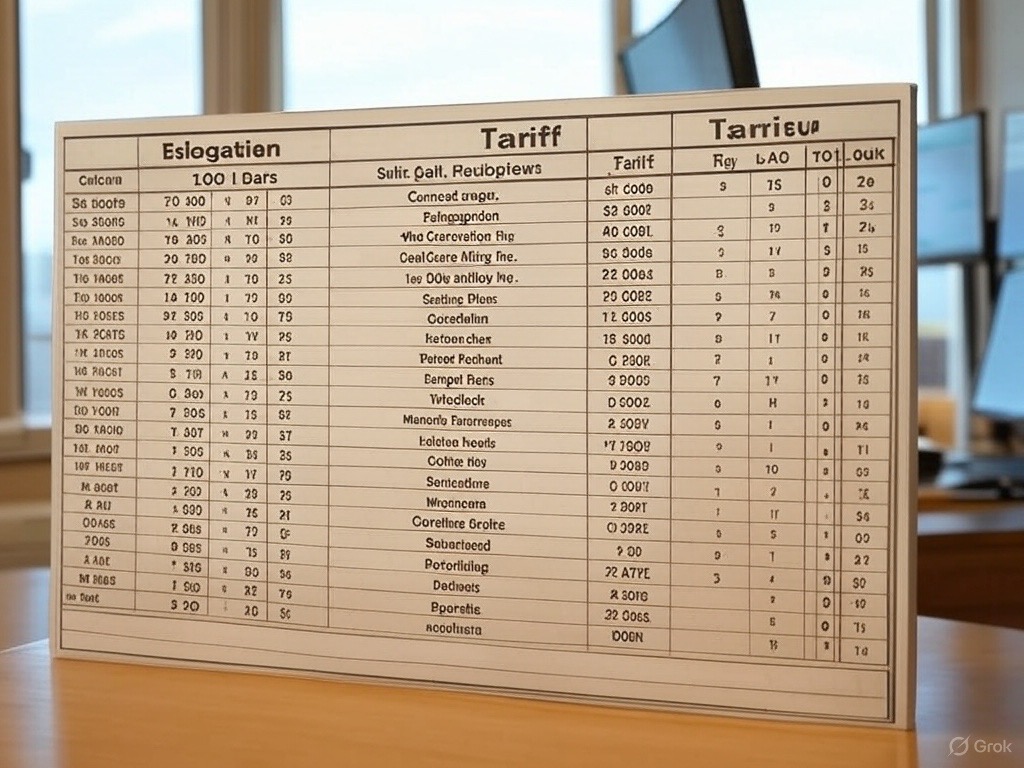On April 2, 2025, President Donald Trump declared a national emergency to address the U.S. trade deficit, invoking the International Emergency Economic Powers Act (IEEPA). This led to the imposition of a universal 10% tariff on all imports, effective April 5, 2025. Additionally, higher tariffs were announced for approximately 60 countries and territories, commencing on April 9, 2025.

Country-Specific Tariffs
The administration introduced “reciprocal” tariffs, adjusting rates based on perceived trade imbalances and practices. Notable increases include:
• China: An effective tariff rate of 54% on Chinese goods after April 9, 2025.
• Other Countries: Tariffs ranging from 24% to 49% on countries such as Japan, South Korea, India, and Vietnam.
Sector-Specific Tariffs
• Steel and Aluminum: A 25% tariff on all steel and aluminum imports, effective March 12, 2025.
• Film Industry: A proposed 100% tariff on all movies produced outside the U.S., aimed at revitalizing domestic film production.
• Venezuelan Oil: A 25% tariff on goods from countries importing Venezuelan oil, as per Executive Order 14245.
⸻
🌍 Global Responses and Impacts
India’s Trade Proposal
India has proposed a “zero-for-zero” tariff agreement with the U.S., offering zero tariffs on steel, auto components, and pharmaceuticals on a reciprocal basis, up to certain import quantities.
Australia’s Trade Strategy
Australia is seeking to diversify its trade partnerships by negotiating free trade agreements with the European Union and India. As part of these negotiations, Australia has offered to abolish its luxury car tax to secure better access for its agricultural exports.
Economic Impacts
The International Monetary Fund (IMF) projects global growth at 3.3% in 2025, steady compared to last year but below pre-pandemic trends. However, the U.S. tariffs are contributing to global economic strain, with concerns over disrupted supply chains and increased costs for consumers and businesses.
⸻
📈 Market Reactions
The financial markets have responded to these tariff measures with increased volatility. Major stock indices have experienced fluctuations, and specific sectors, such as the entertainment industry, have seen stock declines due to proposed tariffs.


